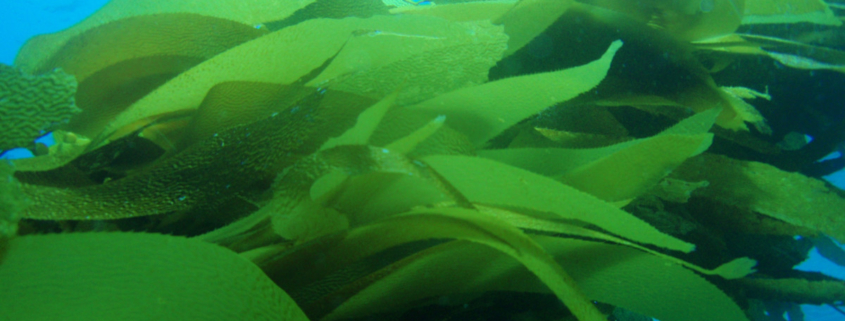Is kelp the new kale? You judge.
The first time we paid attention to kelp at SoundWaters was when UCONN Professor, Charlie Yarish, spoke at our annual meeting several years back. Professor Yarish is the exuberant, creative force behind the research and growth in kelp production worldwide. And while kelp has many advantages – good for the economy, human health, animal habitat and more – one of its biggest features is that kelp can help to fix one of the greatest problems in coastal waterways: kelp can remove excess nitrogen from the water.
 Removing nitrogen from Long Island Sound is not nearly as flashy as pulling plastic from the Pacific, but below the surface, the excess nitrogen flowing into the Sound from our lawns, farms and general human activity is one of the greatest threats to a healthy Sound. A healthy marine environment demands oxygen and nitrogen sets off actions that deplete oxygen. Too much nitrogen contributes to dead zones and unhealthy waters. And while campaigns to limit nitrogen have been effective, the constant stress from all 23 million of us living our active lives along the coast means that we cannot simply conserve our way out of this mess.
Removing nitrogen from Long Island Sound is not nearly as flashy as pulling plastic from the Pacific, but below the surface, the excess nitrogen flowing into the Sound from our lawns, farms and general human activity is one of the greatest threats to a healthy Sound. A healthy marine environment demands oxygen and nitrogen sets off actions that deplete oxygen. Too much nitrogen contributes to dead zones and unhealthy waters. And while campaigns to limit nitrogen have been effective, the constant stress from all 23 million of us living our active lives along the coast means that we cannot simply conserve our way out of this mess.Kelp takes in nitrogen and, once harvested, removes it from the water. Kelp does a whole lot more (improves the ecosystem, offers healthy food options, provides jobs) but one great reason to love your kelp noodles is knowing that each bite helps create  healthier waters.
healthier waters.




